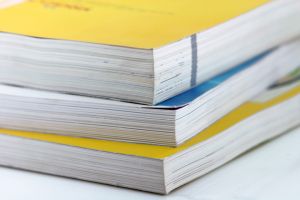 This past week, the Massachusetts’ Office of the Inspector General (OIG) issued its long-awaited report on the Hinton drug lab scandal. The purpose of the OIG’s investigation was to look at how the Hinton lab was run for the 10 years before it was shut down in 2012, identify deficiencies in the practices and protocols, and determine the scope of the malfeasance at the lab.
This past week, the Massachusetts’ Office of the Inspector General (OIG) issued its long-awaited report on the Hinton drug lab scandal. The purpose of the OIG’s investigation was to look at how the Hinton lab was run for the 10 years before it was shut down in 2012, identify deficiencies in the practices and protocols, and determine the scope of the malfeasance at the lab.
The OIG found many major problems relating to Annie Dookhan, the disgraced chemist who is currently serving a 3-5 year sentence for her misconduct, and the way in which the drug lab was run. The OIG did not, however, go so far as to say that all results coming out of the lab were suspect. To the contrary, the OIG found that chemist Dookhan was the “sole bad actor.” The report therefore concluded that only the 40,323 cases in which Dookhan was directly involved needed to be “treated as suspect and be subject to careful review.”
Despite this finding, the report revealed that the way in which the lab was run was alarming, to say the least. The report was highly critical of the drug lab’s managers and the Department of Public Health leadership – the OIG slammed the management and operation of the lab, finding grave and systemic deficiencies on virtually every level. The report specifically stated that the lab “lacked formal and uniform protocols with respect to many of its basic operations, including training, chain of custody and testing methods. This lack of direction, caused in part by the Drug Lab’s lack of accreditation, allowed chemists to create their own insufficient, discordant practices.”
The OIG also found that for trafficking cases involving many drug samples, where every sample wasn’t tested, there were problems with how some chemists estimated the total weight.
Even though the report made the above conclusions, it did not find that there was a reason to believe that the tests results were flawed in other cases, where Dookhan was an additional, or confirming, tester. The report stated that the OIG “found no evidence to support treating cases in which Dookhan confirmed another chemist’s results with any increased suspicion.” The report also found no reason to question the results from the lab in tens of thousands of other cases in which Dookhan played no role at all, stating that there was “no evidence to support treating cases in which Dookhan had no known interaction with the drug sample in question with any increased level of suspicion related to Dookhan.”
The OIG’s report did note that the Hinton lab did not turn over certain documents that might have provided drug defendants with “potentially exculpatory evidence” – evidence that might lead to a “not guilty” finding in court. As a result, an independent, out-of-state lab is retesting about 2,300 drug samples. The OIG will issue a follow-up report on those test results.
The OIG declined to opine as to how the courts should resolve lab cases, but noted that court decisions from other states about similar lab problems may be helpful. Shortly after the OIG released its report, the Supreme Judicial Court issued its own decision about drug lab cases and how they should be handled in Commonwealth v. Scott.
If you or a loved one was convicted of a drug offense and the drugs were tested at the Hinton Lab, you may be eligible for some legal relief. Attorney Daniel Cappetta is an experienced and skilled attorney who will help you figure out what steps you can take to make sure that you have not been treated unjustly. Contact him today for a free consultation.
 Massachusetts Criminal Lawyer Blog
Massachusetts Criminal Lawyer Blog

